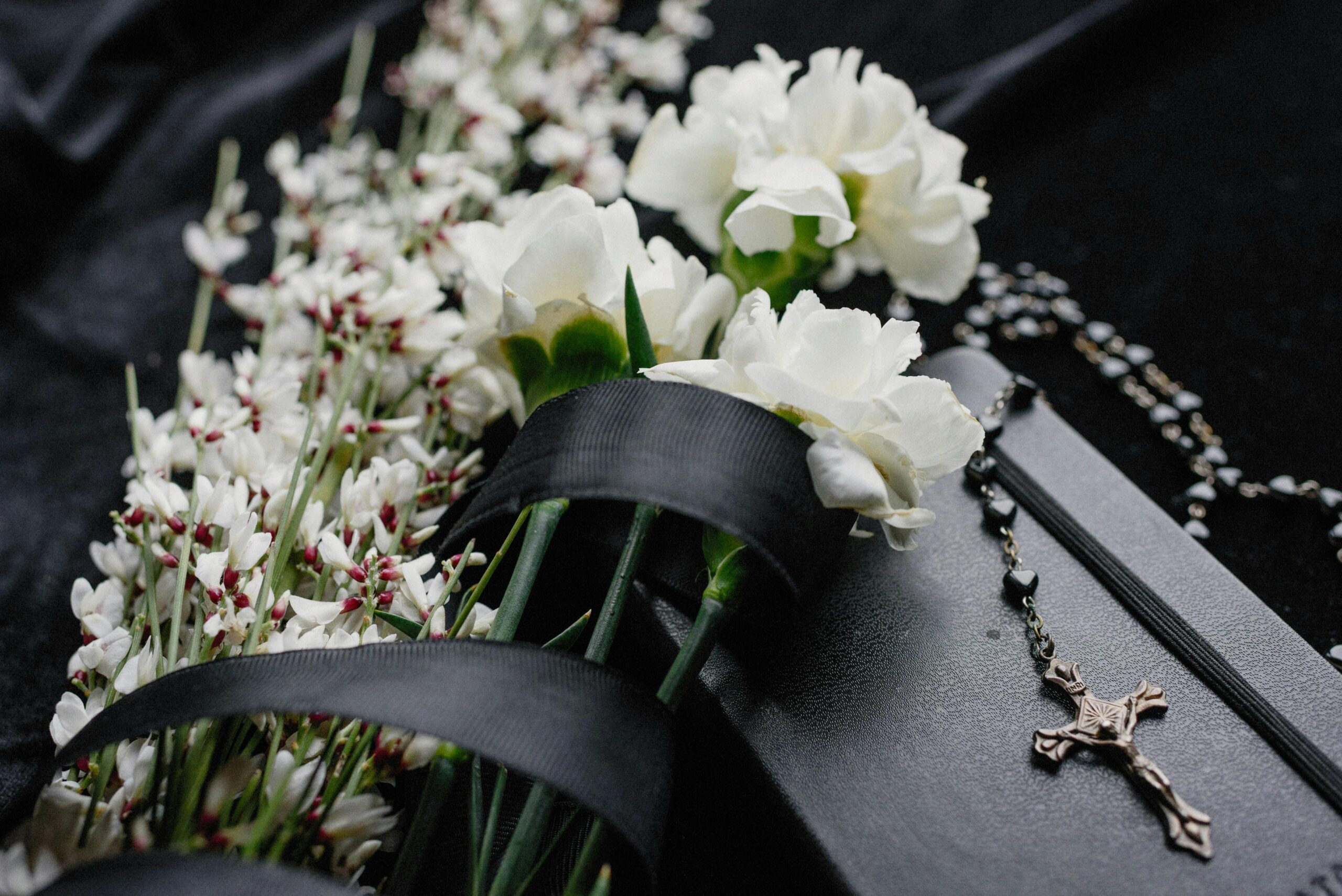
In Singapore, the question of how much to give for a funeral is one that many people ask. Giving condolence money, known as Bai Jin (白金) in Chinese, is a long-standing tradition across different cultures. This funeral donation is a way to show support for the grieving family and help ease funeral expenses.
However, there is no fixed rule on how much to give at a funeral. More importantly, no one should feel pressured to give beyond their means. The funeral donation is a gesture of care and respect, but the true value lies in being there for the loved ones left behind—offering comfort, letting them know they are not alone, and supporting them through their grief.
Table of Contents
The Meaning Behind Condolence Money (白金) at Funerals
Across different cultures, giving condolence money or Bai Jin (白金) is a gesture of solidarity with the bereaved family. The Chinese call these contributions “pek kim”, “bai jin”, or “white gold” in English. Compared to the lucky red envelope often found in celebrations, funeral money is usually stored in small white envelopes. While it may help with funeral costs, its deeper significance lies in acknowledging the family’s loss and offering support during their grief. In the Chinese community, Bai Jin also reflects the reciprocal nature of community support, where those who give can expect similar support in their own time of need.
It is important to note that giving money is not a requirement—it is an optional way to express support. No one should feel obligated to give, and those who cannot afford to contribute should never feel discouraged from attending a funeral. What truly matters is showing up for the family, offering comfort, and making sure they know they are not alone during this difficult time.
You’ll need to place it in a white envelope and hand it to the host family member handling the donation box. They will then list your name and indicate the amount you’ve placed as record-keeping. If you are unsure about the amount to give, any amount within your means is good enough.
However, you don’t need an envelope to hand in your cash donation. The donation box will usually be on the reception table, so it would also be ideal to reach out to the host family, so that they can record down your name and donation amount. This is so that they can tally the amount indicated with the money inside the donation box. If unsure, ask anyone from the host family to help out.
Understanding funeral customs and etiquette can help attendees navigate different traditions respectfully. For those unfamiliar with specific practices, Parting Goodbyes (https://www.partinggoodbyes.com/articles) has extensive resources explaining funeral traditions across different religions in Singapore, helping people know what to expect when attending a wake or service.

Is It Necessary to Give Condolence Money?
Cash contributions are not necessarily compulsory, especially if the guest isn’t financially able. For instance, if you think you may be coming up financially short, you may just attend the funeral and pay respects.
However, you’ll likely be familiar with the practice since cash donations are customary in Chinese or Buddhist funerals in Singapore. You’ll give your fair share, especially since this is viewed as an act of kindness. If you practice Buddhism, giving “pek kim” is said to be a compassionate way of bringing you good karma.
You may also choose to give a condolence gift in place of money. Floristique offers a range of condolence offerings, including flower baskets, flower wreaths, sympathy blankets, and condolence flower stands. Browse their collection here.
You should also know that some families opt not to receive monetary donations at all. Or, they may also announce their intention to donate the condolence money to a charity of their choice. In such cases, it is best to respect the family’s wishes regarding funeral donations.
Buddhist and Taoist Funerals
In Buddhist and Taoist funerals, condolence money (白金) is traditionally given in white envelopes, as white symbolizes mourning. It is customary to give an amount ending in odd numbers (e.g., $30, $50, $70), as even numbers are associated with auspicious events, thus not appropriate for a funeral. This is particularly important for Bai Jin.
There is no fixed amount for how much to give for a funeral, but funeral donations typically range from $30 to $200, depending on the giver’s closeness to the deceased. For Bai Jin specifically, $30 is a common starting point, with closer family members contributing significantly more (e.g., $100-$500).
Some families may provide small return gifts, such as sweets or red strings, which symbolize a transition from mourning.
Christian and Catholic Funerals
How much to give at a funeral in Christian and Catholic traditions varies, as funeral donations are not obligatory. However, guests often give condolence money as a practical way to assist with costs.
There are no specific rules regarding envelope colour or numbers, although many Chinese Singaporeans will opt to give odd numbers in white envelopes, even for non-Chinese funerals. Contributions typically range from $20 to $100.
Muslim Funerals
In Muslim funerals, giving condolence money is considered Sadaqah (charitable giving). A funeral donation is voluntary and may be given directly to the family to ease financial burdens.
Rather than focusing on how much to give at a funeral, the emphasis is on communal support. If one chooses to contribute, amounts typically range from $20 to $100, but there is no set expectation.
Hindu Funerals
Giving condolence money is less common in Hindu funerals, as Hindu funeral customs primarily focus on prayers and rituals. However, some guests may offer a funeral donation as a goodwill gesture.
If given, amounts are generally modest, around $20 to $50.
Non-Religious and Modern Funerals
For non-religious funerals, how much to give for a funeral depends on the family’s preference. Some request no funeral donation, instead encouraging donations to charity in the deceased’s name. Others accept condolence money similar to other traditions, typically between $30 to $100.
In such cases, it is best to respect the family’s wishes regarding funeral donations.
Donations Are About Being Present for the Bereaved
The question of how much to give at a funeral is not about a fixed number, but about the meaning behind it. Giving condolence money or Bai Jin (白金) is a symbolic gesture, but it is not a requirement, nor should it be a barrier to attending a funeral.
More importantly, funerals are not just about honouring the deceased—they are about supporting those left behind. The family is mourning, and your presence reassures them that they do not have to go through it alone.
For those who cannot afford to give a funeral donation, your presence, words of comfort, and emotional support are more than enough. Standing with the bereaved, letting them know you are there for them, and helping in any way you can is what truly matters.
For those unfamiliar with funeral customs in Singapore or unsure about what to do when attending a funeral, resources like Parting Goodbyes (https://www.partinggoodbyes.com/) provide detailed explanations on funeral traditions, etiquette, and what to expect. As a comprehensive funeral directory, Parting Goodbyes also allows individuals to compare funeral packages, understand cultural practices, and navigate the practical aspects of funeral planning, ensuring families can make informed decisions.



Leave a Reply